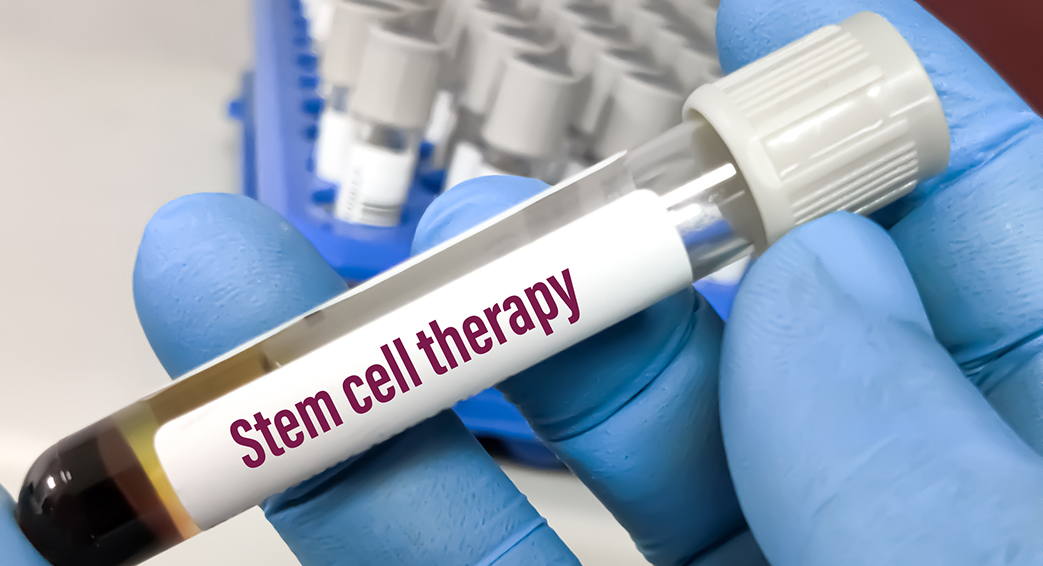In recent years, stem cell and exosome-based therapies have emerged as buzzwords in the world of hair loss treatment. Promising the potential to regenerate and revitalize hair follicles at the cellular level, these techniques have garnered significant attention — and investment — from both consumers and providers. Unfortunately, the excitement surrounding these emerging therapies has also opened the door to opportunistic marketing, questionable practices, and widespread misinformation.
The American Hair Loss Association is issuing this advisory to help consumers understand the difference between legitimate, science-backed innovation and the costly, and often ineffective, offerings currently being promoted to vulnerable hair loss sufferers.
What Are Stem Cells and Exosomes—And How Should They Be Used?
Stem cells are undifferentiated cells with the unique ability to become various types of tissue, including skin, muscle, and even hair follicle cells. When used in medicine, these cells are most commonly harvested from two main sources:
- Adipose tissue (fat cells), typically obtained through a small liposuction procedure.
- Umbilical cord-derived mesenchymal stem cells, collected from donated umbilical cords under strict regulatory oversight.
In their legitimate clinical applications, stem cells must be carefully processed in FDA-compliant labs, with attention to sterility, cellular viability, and patient safety. These therapies are still considered experimental in the context of hair restoration and must be part of a regulated clinical trial or IRB-approved study to be ethically and legally administered.
Exosomes are nano-sized vesicles secreted by cells (including stem cells) that act as messengers, delivering proteins, lipids, and RNA to other cells to influence behavior—such as reducing inflammation or promoting regeneration. While there is theoretical promise in the role of exosomes in hair follicle signaling, there are currently no FDA-approved exosome products for hair loss, and very limited peer-reviewed research supporting their effectiveness in this application.
What’s Really Being Sold?
The treatments currently being marketed to consumers under the banner of “stem cell” or “exosome” therapy for hair loss are frequently misleading or outright fraudulent. Here’s what’s often happening behind the scenes:
1. Expensive PRP Masquerading as “Stem Cell Therapy”
Many providers are rebranding platelet-rich plasma (PRP) — a well-known treatment involving the patient’s own blood — as “stem cell” therapy. While PRP may have modest benefits in certain patients, it does not contain stem cells and is not remotely the same as true regenerative cell therapy.
2. Unregulated, Unknown Topicals Marketed Online
A growing number of subscription-based online companies are selling so-called “topical exosomes” directly to consumers. These unproven substances often come with no verified origin, no quality assurance, and no peer-reviewed evidence of effectiveness. Many of these products may not even contain functional exosomes and could pose contamination or safety risks.
3. Umbilical or Amniotic “Stem Cells” with No Live Cells
Some clinics market “stem cell injections” sourced from amniotic fluid or umbilical tissue, but in many cases, these products contain no live stem cells at all — only debris or proteins that are unlikely to produce any regenerative benefit.
Why Batch Safety and Regulatory Oversight Matter
Genuine stem cell or exosome products must undergo rigorous quality control measures:
- Each batch must be verified for purity, sterility, and cell viability.
- The source of the cells must be documented and handled in accordance with FDA guidelines for donor screening and manufacturing.
- Only providers who are part of legally registered studies or trials should be offering these services.
The unfortunate reality is that many of the clinics or medispas promoting these therapies do not meet any of these standards — and in some cases, may not even be staffed by licensed physicians.
A Word of Caution
Hair loss can be emotionally devastating, and the desire for a breakthrough cure is deeply understandable. However, consumers must be extremely cautious when navigating this space. If a treatment sounds too good to be true, especially if it is being advertised through aggressive social media campaigns or endorsed by influencers with no credentials, it likely is.
The American Hair Loss Association urges anyone considering a stem cell or exosome treatment to:
- Consult with a qualified hair loss specialist.
- Verify the legitimacy of any product or provider.
- Look for participation in FDA-approved clinical trials or formal research settings.
- Avoid treatments offered by subscription or direct-to-consumer services claiming to deliver “miracle” results.
Conclusion
Stem cells and exosomes hold genuine promise in the field of regenerative medicine — but when it comes to hair restoration, that promise remains unproven outside of carefully controlled research settings. At this time, the American Hair Loss Association does not endorse the use of stem cell or exosome-based treatments for hair loss outside of legitimate clinical trials or institutional research environments.
That said, if these therapies are being offered by accepted members of the International Alliance of Hair Restoration Surgeons (IAHRS), patients can be more confident that they are likely part of regulated clinical studies, utilizing verified, high-quality biologics under proper medical oversight. These physicians are among the most experienced and ethical in the field and are typically committed to advancing the science while protecting patients from the risks associated with unproven or unsafe interventions.
Consumers should remain cautious when encountering these treatments in unregulated medispas, aesthetic clinics, or online subscription models that often lack transparency, scientific validation, or medical accountability. If you’re considering any regenerative therapy for hair loss, please consult with the American Hair Loss Association or a trusted IAHRS-affiliated physician before proceeding.
